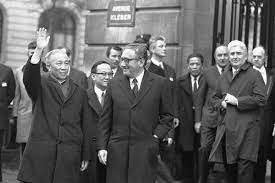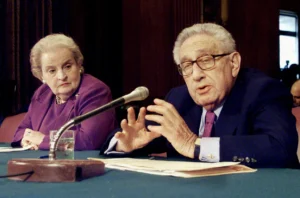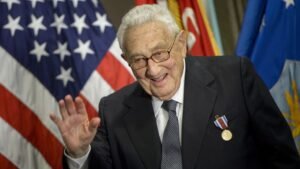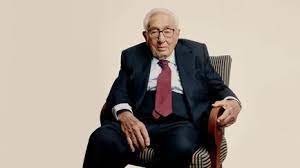Henry Kissinger, former Secretary of State, played a significant role in the United States’ foreign policy, leading the country to break down barriers with China and extricate itself from Vietnam. Kissinger, under Presidents Richard Nixon and Gerald Ford, wielded significant influence on global affairs, earning both vilification and the Nobel Peace Prize, despite his controversial foreign policy landmarks, causing ongoing debate and controversy.

Kissinger’s influence grew during Watergate, as he assumed a role similar to co-president Nixon. His vanity was piqued, but the dominant emotion was a premonition of catastrophe.
Kissinger’s key initiatives have significantly sculpted history.
He initiated the Paris negotiations that ultimately provided a face-saving means — a “decent interval,” he called it — to get the United States out of a costly war in Vietnam. Two years later, Saigon fell to the communists. Kissinger, a prominent figure in US history, pursued a policy of detente with the Soviet Union, leading to arms control agreements and potentially easing the Cold War’s nuclear threat. At age 99, he defended his decisions, stating that they were based on his life’s experience and the best he was capable of.

Kissinger also expressed mixed opinions on Nixon’s record, stating that his foreign policy has been effective and his domestic policy has been effective, but acknowledged that Nixon’s actions were inappropriate.
Despite his aging age, Kissinger’s legacy continues to influence US foreign policy. Kissinger, a renowned figure in history, has been celebrated for his love of historical symbolism. His son David, who praised his father’s centenary, noted that he outlived his peers, detractors, and students, and remained active throughout his 90s. Kissinger, born Heinz Alfred in 1923, was a prominent Nazi figure who left Germany in 1938 and settled in Manhattan, changing his name to Henry.
Henry Kissinger, a prominent figure in the field of education, has a rich history of early life and experiences.
Louis Kissinger, a German-Jewish schoolteacher, was the son of Paula and Louis Kissinger. Kissinger was born on May 27, 1923, in Fürth, Bavaria, Germany. His family was German-Jewish, with his great-great-grandfather adopting the surname in 1817. Kissinger enjoyed playing soccer and played for the youth team. Kissinger, a prominent figure in the Holocaust, recounted his experiences during Nazi rule. He and his friends faced harassment and beatings from Hitler Youth gangs, often sneaking into soccer stadiums to watch matches. 
Due to anti-Semitic laws, Kissinger was unable to gain admittance to the Gymnasium, and his father was dismissed from his teaching job.
Henry Kissinger, International Relations
Kissinger, a former National Security Advisor and Secretary of State under President Richard Nixon continued his tenure under Gerald Ford, becoming the last surviving member of the Nixon administration Cabinet after George Shultz’s death in February 2021.

Kissinger and Nixon had a close, compared to Woodrow Wilson and Colonel House, or Franklin D. Roosevelt and Harry Hopkins. They shared a penchant for secrecy and conducted numerous “backchannel” negotiations, such as those through the Soviet Ambassador to the United States, Anatoly Dobrynin, which excluded State Department experts. Historian David Rothkopf has examined the personalities of Nixon and Kissinger. Kissinger, a proponent of Realpolitik, played a significant role in the United States foreign policy between 1969 and 1977.
Kissinger was jointly awarded the 1973 Nobel Peace Prize for helping establish a ceasefire and U.S. withdrawal from Vietnam. However, the ceasefire was not durable, and Kissinger appeared ambivalent about the award. As National Security Advisor in 1974, Kissinger directed the National Security Study Memorandum 200.
Henry Kissinger significantly influenced US Cold War history
Henry A. Kissinger, a scholar-turned-diplomat, played a pivotal role in shaping the United States’ relationship with China, negotiating its exit from Vietnam, and reshaping its power dynamics with the Soviet Union.

Henry A. Kissinger, a scholar-diplomat, played a pivotal role in shaping the United States’ relationship with China, negotiating its exit from Vietnam, and reshaping its power dynamics with the Soviet Union. His consulting firm announced his death in a statement. Kissinger, the most powerful American secretary of state, was both celebrated and reviled for his ultrarealist approach to diplomacy and his abandonment of American values, particularly in human rights.











